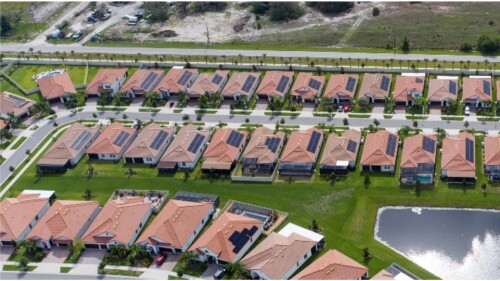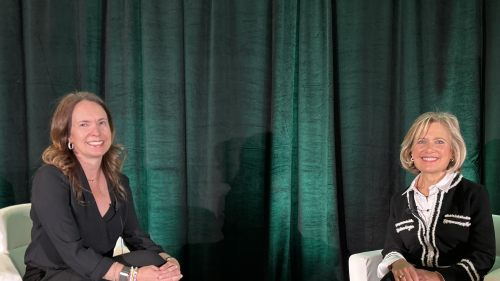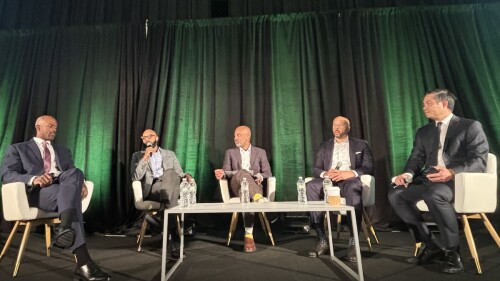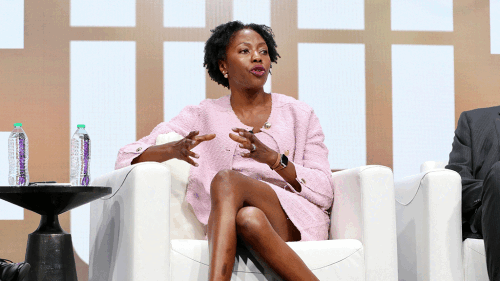Leaders from academia, government, nonprofit organizations, and the private sector met in Beijing, China, at the Pacific Cities Sustainability Initiative (PCSI) Forum, Healthy City | Resilient City at the end of April. The third in an annual series of invitation-only forums carried out jointly by the Asia Society and the Urban Land Institute, this year’s program focused on interconnections among health, resilience, and urban development.
The forum’s goal was to explore the attributes of a healthy, sustainable, and resilient city. “Increasingly, cities are reevaluating how they are growing to meet the stresses of urbanization, climate change, demographic shifts, economic constraints, and technology advancements,” said ULI Chair Lynn Thurber at the event. “And building for health and resilience is an integral part of this new approach to growth.”
The program began with an evening keynote address by Kevin Rudd, former prime minister of Australia. Qiu Baoxing, former vice minister for China’s Ministry of Housing and Urban Development and current China state counselor, offered the forum’s other keynote address. Panels explored issues including China’s urban growth trajectory, Beijing’s future, lessons learned from Singapore and other high-density Asian cities, the social dimensions of health and resilience, and infrastructure, among other topics.
The forum was simultaneously translated into English and Chinese and drew participants from China, across the Asia Pacific region, the United States, and beyond. Over the past three years, the forum series has provided a venue for cross-disciplinary interchange among urban leaders and thinkers working to solve the pressing urban issues of our time. On the breadth of views represented, one participant commented: “I go to a lot of meetings like this. I don’t go to a lot of meetings with these people.”
Globally, understanding about the interconnections among health, resilience, and urban development is still evolving. One participant reflected: “Instead of the usual marketing pitch after marketing pitch, this forum takes on the challenges for which no one has the answers.”
The forum provided a venue for participants to challenge themselves and each other to think in new ways about a very old conundrum: how to build and shape cities that enhance and protect the well-being of the people who live in them, and that heal and sustain the earth at the same time.
To that end, forum participants worked together to craft principles for integrating health and resilience in Asia Pacific cities, as well as messages for taking these principles beyond the forum. Draft principles included the following:
- Put people first by creating compact, mixed-use, transit-oriented communities.
- Foster communities that are diverse in age and generation, social class, and perspectives.
- Engage stakeholders and communities collaboratively.
- Make a community’s unique character/spirit, culture, history, values, and context core to building a sense of place and identity.
- Increase walkability through fine-grain movement network and building sizes; breaking down superblocks to enhance connectivity.
- Adopt incremental, adaptive, small-scale approaches and processes to enhance flexibility and building a sense of belonging.
I was struck by a “back to the future” theme that emerged in several sessions: cities are working to undo mistakes made in the past few decades. For example, Joonho Ko, research fellow at the Seoul Development Institute, shared that highway overpasses in Seoul, South Korea, are being demolished and repurposed into open space, bikeways, and pedestrian routes. Contrary to what one might expect, traffic flow has significantly improved and choking congestion eased. Other participants reflected on the need to rethink Beijing’s “superblocks”—a legacy of Soviet-era planning—to create a more functional urban fabric. Still others noted the irony of bike shares as a new concept in a city that used to be filled with bicycles.
Rachel MacCleery, senior vice president for content at ULI and lead on the organization’s Building Healthy Places Initiative, has lived off and on in Beijing and elsewhere in China since 1994 and helped organize the forum. “Beijing was an apt backdrop for this discussion,” she reflected. “Despite tremendous economic development, the city faces urgent urban planning and public health challenges. As discussed at the forum, auto-centric investment patterns, poor air quality, a weak public realm, and insufficient green space mean that the city has become increasingly hostile to pedestrians and those on bikes. There is no more important task, in Beijing and elsewhere in the Asia Pacific region, than putting people first.”
The meeting included an optional mobile workshop to several sites in Beijing, and another that began in Shanghai and traveled by high-speed rail to Beijing. ULI distributed its reports and research at the event, including the recently published Building Healthy Places Toolkit (available at www.uli.org/toolkit), which was translated into Chinese for the forum. Excerpts from ULI’s Ten Principles for Building Healthy Places and Resilience Strategies for Communities at Risk also were translated into Chinese and distributed to participants.
At the conclusion of the event, participants were asked to make commitments to carry the messages and themes from the forum into their life and work beyond the event. Reflecting the diversity of the group assembled, answers ranged from “write a report for my supervisor” to “hold a discussion with my investors” to “plant a garden.” It is through these actions—and the new thinking spurred by events like the Healthy City | Resilient City Forum—that cities will be able to craft a healthier, more sustainable future.




